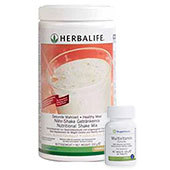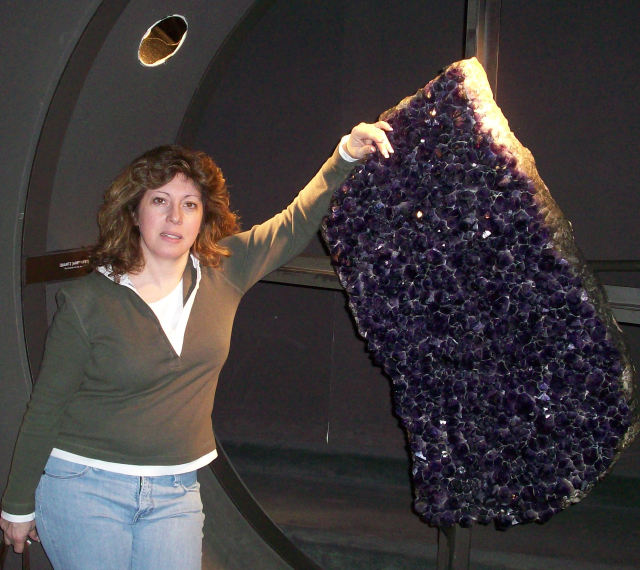Another question
Question
QUESTION: Hello agan and thanks again for taking your time to answer my question.
I have read that you are supposed to drink water 30 minutes before a meal and only an hour later (from several sources)...
I sincerely don't remember ever not having a drink with my meal (mostly sugar coke to be frank), but right now I'm on a diet so I only have water...
Problem is... The one time I tried to drink water as instructed (30 mins before and 60 mins after) I got totally bloated... I'm expecting that happened because my system is already used to producing lots of acid to overcompensate (which gave me problems in the past and nowadays anyway).
Now digestive enzymes help a lot these days, but what I want to ask you is: Any ideas on why I get bloated if I follow this "do not drink water during meals"?
Also, if I may, I also get bloated after following the other idea of "eating fruit on an empty stomach or between meals". I wonder why that is...
I know my question is kind of long and not really ONE question, but any ideas on any of those presented would be greatly appreciated.
Thank you kindly again for taking your time !
ANSWER: Dear Liz,
I'll address all the answers to your questions!
There is no physiological reason to avoid eating or drinking in any combinations at any time! Your digestive system works around the clock and can handle any food and beverages you give it, no matter the order or the combination.
The suggestion to have fluids before meals is one given to dieters to make them feel full--that is the "bloated" feeling you get so you eat less. But you can relax and drink with meals if you like to, with no problem. Another practice (mindful eating) suggests you not drink with meals so you can mentally focus totally on your food. But drinking with meals is no problem to your body!
I'm not sure I understand your reference to producing acid to overcompensate? Some people have a problem called reflux, where the stomach acid comes up into the esophagus and causes heartburn; but your body doesn't produce more acid.
And what about the digestive enzymes? These are for people with pancreatic insufficiencies who aren't able to digest fats, for instance, and this results in fatty stools. Do you have a pancreatic or digestive problem? It sounds like you've had some gastrointestinal issues before and perhaps that leads to discomfort and bloating--perhaps you can tell me more about that.
The recommendation for eating fruit on an empty stomach goes back to the 1920's when refrigeration was not easily available and food spoilage was a problem. A doctor wrote a paper to tell people they did not get sick from fruit and they should not avoid fruit for fear they would get sick. He said if you get sick (food poisoning) it's probably from meat you're eating. So eat fruit separately and you'll see that it doesn't make you sick. Of course, that's snowballed into some crazy diet advice and all over the internet now as "A prominent physician advises eating fruit alone and not with other foods or you'll get sick"... hmmm... like an ancient game of "operator"!
I hope that answers all your questions :)
---------- FOLLOW-UP ----------
QUESTION: Yes I did suffer from reflux and it comes back from time to time (and it was really bad to be frank), but with a diet based on soda and all bad things, including beer... What can one ask for?
As for the enzymes, I don't know if I have a problem with my pancreas, although I do know I have a problem with the bile. Main point is they truly offered me relief from bloating as I do not bloat anymore after taking them.
When I said my stomach probably got used to producing more acid, I refered to compensate to the alcalinity water installs... Of course I don't know much medicine so it was just a lucky guess...
They say different foods take different times to digest and MOST TROUBLING different mediums (as in some digest in alkaline mediums whereas others require acid mediums) so that is why they should not be combined... ?
However I'm really getting confused because, par example, I don't understand anymore why you're supposed to mix salads and meat when salads are highly alkalizing whereas meat produces lots of acid (if I have it right)... So it's more like a balance and not one item digesting in a medium and some other in another medium...
And they also say citrus juice is also alkalizing, but how on earth can that be?
I'm sorry about so many questions, I know this is a free service, but I got a bit carried away. So if you cannot, please, do not answer.
Best regards and thank you for your answers so far !
Okay, here's how your body works the acid and base thing.
First, water is neutral and not alkaline so your body does not have to produce acid to neutralize it.
Next, your stomach is an acid environment for food to start breaking down, especially proteins. Carbohydrates need an alkaline environment for the enzymes to work on it. The pancreas releases bicarbonate into the small intestine, so by the time the food works it's way out of the stomach, that's where carb digestion occurs.
So, you see, the body has it all figured out and we don't have to worry about what we eat, when we eat it, or what else we eat at that meal. Every time you eat the same juices flow into your digestive tract, even if you are digesting simple carbohydrates, the body is ready to handle fats and proteins at the same time!
When people refer to a food that is acid or base, and then foods that become acidic or basic in your urine, it can make a big difference. Citric acid becomes basic by the time it gets to your urine because of biochemical changes in the body.
The body itself does not change acid or base levels... the blood has a consistent pH of 7.39 and that can never change, or it can be lethal. This is the pH at which everything works! (breathing, etc and other reactions and transporting things in your blood). Your body maintains this specific pH through releasing more or less of certain elements through the breath or through the kidneys. People with kidney disease or lung disease can have upset acid/base balance which is treated with medications... eating acidic or basic foods does nothing to alter the blood pH.
Hope this helps clear up some misconceptions!!
Laurie
- Prev:Cannot lose weight
- Next:Weight or muscle gain?
Related Articles
-
calories & fat grams
QuestionPer ounce, how many calories, and fat grams, in 80 proof
-
Stomach
QuestionHi I have been trying to reduce my belly for years. I hav
-
16 at 55 240lbs Help me!
QuestionI am 16 yrs old 55 and 240lbs. Why cant I lose any weight
-
Glucosamine tablets and capsule
QuestionI understand that in the market there are glucosamine cap
-
i need help losing weight and dieting
QuestionI am 15 years old, im 511, and i weigh 168 pounds am i ov
-
Zero Calorie Vitamin Water sweetened with Ace K and Sucralose
QuestionCan a vitamin enhanced zero calorie water beverage sweete




